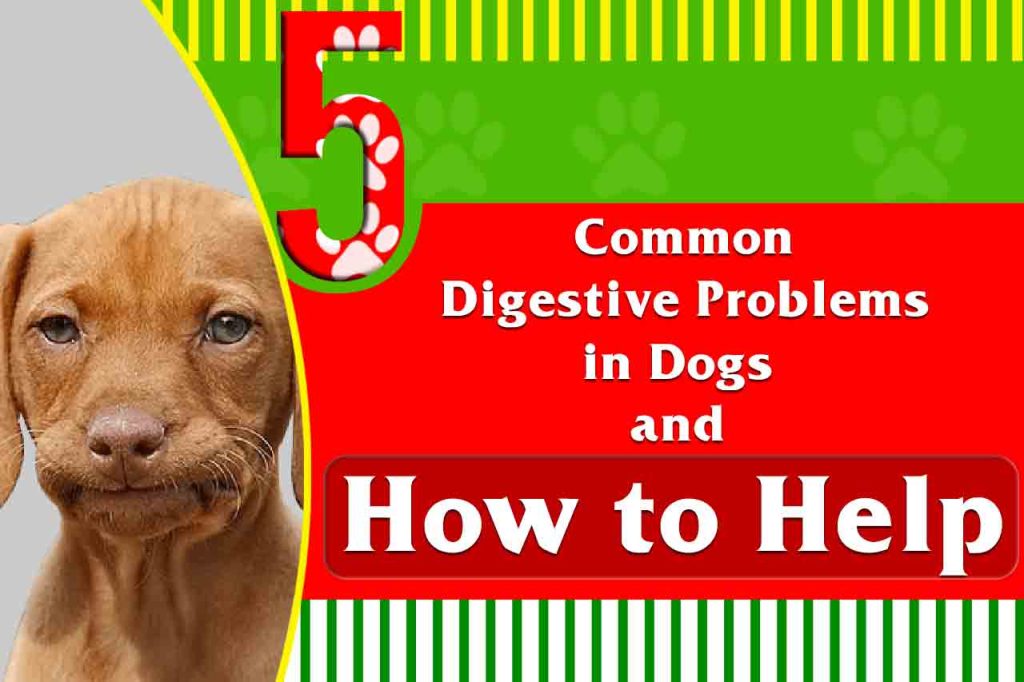Just like humans, dogs can also have digestive problems. We know it’s heartbreaking to see your beloved pooch sick. But, knowing the symptoms of digestive issues, the most common digestive issues, and what to do is essential to help your dog get back on its paws ASAP.
What Are the Symptoms of Digestive Problems in Dogs?
The most common symptoms of digestive problems in dogs are:
- Diarrhea
- Constipation
- Vomiting
- Nausea
- Excessive gasses
- Lack or loss of appetite
- Bloody stool
- Dehydration
- Excessive shaking
What Are the Most Common Digestive Problem in Dogs and What Can You Do to Help?
Infections, Illnesses, and Diseases
Digestive issues in dogs are mostly caused by infections, illnesses, and diseases. Infections are most commonly caused by bacteria, parasites, and viruses. Worms can also cause stomach issues in dogs because they multiply and spread very fast.
When it comes to illnesses, kidney stones, ulcers, and enzyme deficiencies are common in dogs, especially older dogs. And, in terms of disease, inflammatory bowel disease, gastritis, pancreatitis, cancers, and tumors may be the reason for your dog’s digestive issues.
How to Help?
If any of these conditions are causing your dog’s digestive issues, you have to immediately take him/her to the vet. They’ll do the proper analyses to identify the exact cause and, then, will give proper treatment.
Overeating
Dogs LOVE to eat and, sometimes, they just can’t stop eating. That leads to overeating. You can easily notice that your dog has overeaten because its stomach becomes hard and inflated.
How to Help?
If you notice your dog’s stomach is hard and inflated, leave everything and head to the vet ASAP.
Of course, the best thing you could do is prevent overeating. You can do this by storing the dog’s food away from your dog, using a food bowl with weird shapes to make fetching large bites hard, and feeding your dog smaller meals more often.
Food Allergies
Food allergies have become a quite common issue affecting a large number of dogs. The most common allergens are dairy, gluten, additives and preservatives, and grains. However, dogs may also be allergic to beef, chicken, and eggs.
How to Help?
You should always first consult with your vet to instruct you on how to identify the exact allergen. However, since it’s always best to prevent than to treat, we suggest feeding your dog hypoallergenic foods and treats. For instance, our Himalayan yak chews are made of all-natural and 100% organic ingredients and are free from additives, preservatives, artificial flavors and colors, gluten, grains, and dairy.
Eating Forbidden Foods
Dogs can’t resist food, even if it’s off-limits. So, they tend to digest things like grapes, nuts, chocolate, coconut, and similar human food. And, while these foods are delicious, they can cause digestive issues.
How to Help?
If you suspect your dog has eaten something they aren’t supposed to, call your vet. They’ll check what your dog has digested and tell you what’s next.
Swallowing an Object
Dogs sometimes don’t choose what they put into their mouth, so they may swallow objects like balls, socks, strings, toys, and even cleaning products. And, while smaller objects will go through their digestive tract without causing much trouble, only discomfort, larger objects can cause blockages in the digestive tract and intestines.
How to Help?
If you notice there’s something wrong with your dog, call your vet or take your dog to the vet ASAP.
Summary
These are the 5 most common digestive problems in dogs. But, there are many other causes, which is why it’s essential to monitor your dog’s behavior and act on time if you notice anything strange.
While some of these problems aren’t serious, some can be fatal. That’s why it’s always best to consult with your vet before doing anything on your own. Of course, it would be even better to prevent any of these issues from happening.
 CA
CA

